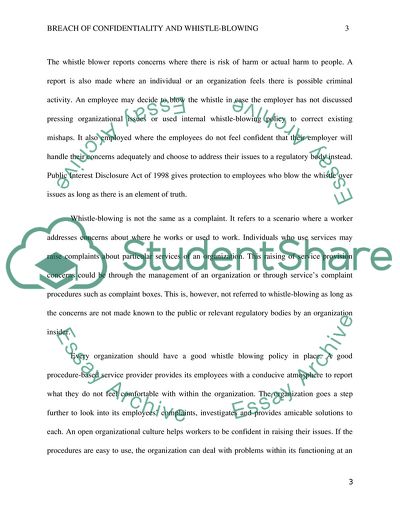Cite this document
(Breach of Confidentiality and Whistle-blowing Essay - 1, n.d.)
Breach of Confidentiality and Whistle-blowing Essay - 1. https://studentshare.org/ethics/1800690-breach-of-confidentiality-and-whisleblowing
Breach of Confidentiality and Whistle-blowing Essay - 1. https://studentshare.org/ethics/1800690-breach-of-confidentiality-and-whisleblowing
(Breach of Confidentiality and Whistle-Blowing Essay - 1)
Breach of Confidentiality and Whistle-Blowing Essay - 1. https://studentshare.org/ethics/1800690-breach-of-confidentiality-and-whisleblowing.
Breach of Confidentiality and Whistle-Blowing Essay - 1. https://studentshare.org/ethics/1800690-breach-of-confidentiality-and-whisleblowing.
“Breach of Confidentiality and Whistle-Blowing Essay - 1”. https://studentshare.org/ethics/1800690-breach-of-confidentiality-and-whisleblowing.


